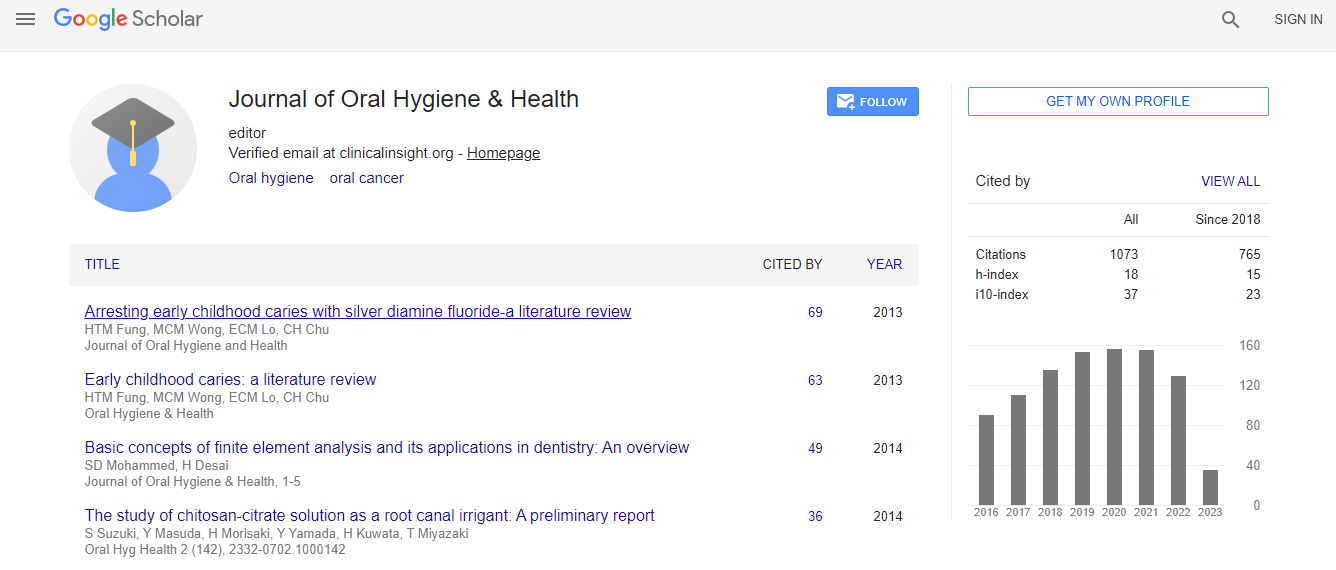Case Report
CT Assisted Diagnosis, Management of Soft Tissue Cervicofacial Emphysema and Pneumomediastinum during Root Canal Treatment of an Upper Premolar: A Case Report
Navin Mishra* and Isha Narang
Senior Resident, Department of Conservative Dentistry and Endodontics, Centre for Dental Education and Research, All India Institute of Medical Sciences, New Delhi, India
- *Corresponding Author:
- Navin Mishra
Senior Resident
Department of Conservative Dentistry and Endodontics
Centre for Dental Education and Research
All India Institute of Medical Sciences New Delhi, India
Tel: 11 2658 8500
E-mail: navinpdch@gmail.com
Received Date: November 25, 2014; Accepted Date: January 27, 2015; Published Date: February 02, 2015
Citation: Navin Mishra, Isha Narang (2015) CT Assisted Diagnosis, Management of Soft Tissue Cervicofacial Emphysema and Pneumomediastinum during Root Canal Treatment of an Upper Premolar: A Case Report. J Oral Hyg Health 5:1000169. doi: 10.4172/2332-0702.1000169
Copyright: © 2015 Navin Mishra. This is an open-access article distributed under the terms of the Creative Commons Attribution License, which permits unrestricted use, distribution, and reproduction in any medium, provided the original author and source are credited.
Abstract
Aim: To discuss the iatrogenic cervicofacial emphysema and pneumomediastinum after endodontic treatment of maxillary premolar.
Summary: A 25-year-old female was referred to the department with considerable swelling on the right side of face. She gave a history of progressive swelling with mild difficulty in breathing and swallowing 15 minutes after endodontic treatment of an upper right first premolar. The tooth was accessed by a private practitioner using high speed air driven handpiece without the use of rubber dam and compressed air was used to dry the canals. On examination, swelling extended from right peri-orbital region to the neck bilaterally. It was soft, non-erythematous and showed crepitations without pain. The microbiological tests showed no evidence of infection. A Computed tomogram of the thoracocervicofacial region confirmed the diagnosis of cervicofacial emphysema with pneumomediastinum. She was kept on antibiotics and analgesics for 7 and 3 days respectively. Patient showed regression of swelling, dyspnoea and dysphagia on follow up visit after 48 hours.
Key learning point: Early diagnosis and management of such cases is of extreme importance to prevent possible cardiopulmonary complications and infections. Computed tomography scans are very useful in diagnosis and to determine the extension of air into the tissue spaces.

 Spanish
Spanish  Chinese
Chinese  Russian
Russian  German
German  French
French  Japanese
Japanese  Portuguese
Portuguese  Hindi
Hindi 
